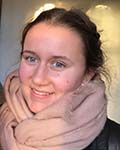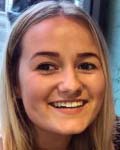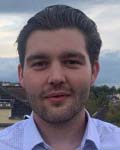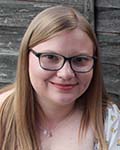Student Placements
About the placement module
On the BA Education course, you may be able to choose the 10 or 20 credit optional placement module in years two or three. Your professional placement has so many benefits, from skill development and career exploration, to networking and building commercial awareness. This module aims to support you through your placement journey, from application, to reflecting on the skills you have gained through the experience and information on assessment requirements.
Please be aware that study abroad, compulsory year abroad, optional placements/internships and integrated year in industry opportunities may change at any time for a number of reasons, including curriculum developments, changes to arrangements with partner universities or placement/industry hosts, travel restrictions or other circumstances outside of the university's control. Every effort will be made to update this information as quickly as possible should a change occur.
Educational Journalist placement
For her year two placement, Jemima Corrie has taken on the role of Educational Journalist for the Creativity Collaboratives project in Nottingham.
Jemima says:
A range of local creative practitioners, such as artists, actors and digital designers are going into schools to combine their art form with learning, and I am observing their work and documenting their experiences and the impact this collaboration has had on the pupils and teachers. I am particularly interested in creative learning methods, so this placement is a brilliant opportunity for me to see creative learning in action.
This placement also ties in really nicely with the Developing the Ethical Professional module as we’ve been covering topics like ‘What does it mean to be a professional?’ and ‘How does our personality differ from our professional selves’. Because I’m interacting with teachers and staff from local schools, it gives me the chance to put the theory into practice and act as a professional, I’m sending emails, arranging meetings and conducting interviews and so on. This placement is a really great journalistic opportunity that I am thoroughly enjoying so far!
Read Jemima's case studies on the Nottingham Creativity Collaboratives website
Alumni placement experiences
Neethu Jacobs - primary school placement
Neethu knew she wanted to become a primary teacher and chose a placement in a local primary school to reassure herself this was the right career for her. Since graduating, Neethu spent a year doing a postgraduate teacher training course and is now working as a teacher.
In this video, Neethu discusses the work she was involved in during her school placement, how she included British Sign Language in her experience, and how she was able to apply theory learnt on the course to practice.
Elizabeth Jennings - primary school placement
Placement: Woodlands Academy, a special school for children aged 3-16.
What did you learn and how did you apply that learning to your course?
I learnt a lot about a special school, alternative curricula, and the role of academy trusts. I was able to see how the school catered to children with different needs, for example by having mixed aged class groups. This placement allowed me to better engage with discussions that we had in seminars about inclusive education and school governance.
How has the placement helped you in the workplace since graduating?
It gave me an insight into what working in schools is like, which contributed to my decision to take a healthcare course after graduating - a graduate entry nursing course, towards an MSc in children's nursing. While it confirmed that I loved working with children and young people, it also made me realise that I want to be more hands-on in my care of families than working in schools would allow.
I gained confidence working in new environments and practiced professional communication skills. These skills have been invaluable in my placements in hospital settings. My knowledge of the current school system means that I can better understand the lives of the children and young people who I nurse, and I have increased knowledge of certain learning disabilities as a result of my placement at Woodlands.
Sophie Wesson
Placement: TwentyTwenty, a college for children aged 16-24 who are not in education or employment and have no GCSE’s.
What did you learn and how did you apply that learning to your course?
It really opened my eyes to how different the education system really is for everyone and how vulnerable people can easily be excluded. I also learnt a lot of hands on skills such as learning to break down work for students and I improved on my communication skills.
How has the placement helped you in the workplace since graduating?
It enabled me to experience a professional work environment and how it worked. I also got some teaching assistant experience and I think mostly it developed my confidence.
Ewan Sinclair
Placement: Middleton Primary School, working with year four pupils.
What did you learn and how did you apply that learning to your course?
I had the opportunity to speak to my class teacher and other staff in the school asking questions and gaining great insight. I was able to apply what I had learnt on the course into the classroom. I found the placement very rewarding and ultimately helped me to secure the role I’m in now (education recruitment).
How has the placement helped you in the workplace since graduating?
I now work with primary schools every day and can empathise and relate more to the educators I work with. The placement helped me realise I wanted to work with schools but not teach.
Philippa Manning
Placement: IntoUniversity (Nottingham West Centre), a charity that aims to inspire students from disadvantaged backgrounds to reach their potential and support them in gaining a place at university or within their chosen careers.
What did you learn and how did you apply that learning to your course?
This placement allowed me to learn a lot about how education can be used within other settings and the sorts of careers that were available in these non-school settings.
I would say the biggest thing I learnt about was seeing first-hand social inequality within education. It was at the end of a session and a little boy was racing to finish his homework before leaving. I said to him that he didn't need to rush and that he could take it home to finish. He said that he couldn't because he did not have colouring pencils at home. That was the first time I realised how much of a big difference IntoUniversity makes to the lives of these children. Additionally, when it was announced the schools were shutting due to Covid-19, the centre had to ring every family who attended to see what sort of internet access they had at home and whether they had devices suitable to carry on learning and attending IntoUniversity.
I was able to apply my learning to my course through my assignments. For most of our assignments, we were able to choose our own topics within the module. This meant we could really make it our own and focus on what we were interested in. I wrote several assignments based upon the social inequality I saw through IntoUniversity, including:
- a presentation on access to appropriate technology during the Covid-19 pandemic for the Inclusive Education module
- an analysis of The Victorians videos produced by BBC Teach, for the New Modes and Sites of Learning module. Choosing to analyse videos was partly due to the use of online learning during the pandemic and I highlighted the issues some children were facing due to lack of internet connectivity or suitable devices
- my dissertation, which was on inequality surrounding school readiness - a critical reflection on how the incident described above was eye-opening and how I can be more conscious about inequalities in resources
How has the placement helped you in the workplace since graduating?
I actually applied to the Graduate Education Worker scheme at IntoUniversity. Unfortunately, it is a very competitive scheme, so after getting through all of the application stages, I did not receive an offer. However, the module itself has helped me to develop me to understand that there are other educational settings that do very beneficial work with students. This helped me to look into alternative settings other than schools when it came time to leave university. It also helped me to understand barriers to education and social mobility/inequality within education. I am able to apply my knowledge of this in my current job, working with students in higher education, and the difficulties they may face at university and getting to university.
Placement organisations
Some of the organisations who have hosted our students for their placement are:
This page will be updated throughout the year so please check back at a later date.
Alumni profiles
If you want to find out more about Elizabeth, Sophie, Ewan and Philippa's time on the BA Education course, visit our alumni profiles page. They discuss why they chose the course, how it supported their career ambitions and the extra-curricular activities they got involved in during their time at the University of Nottingham.